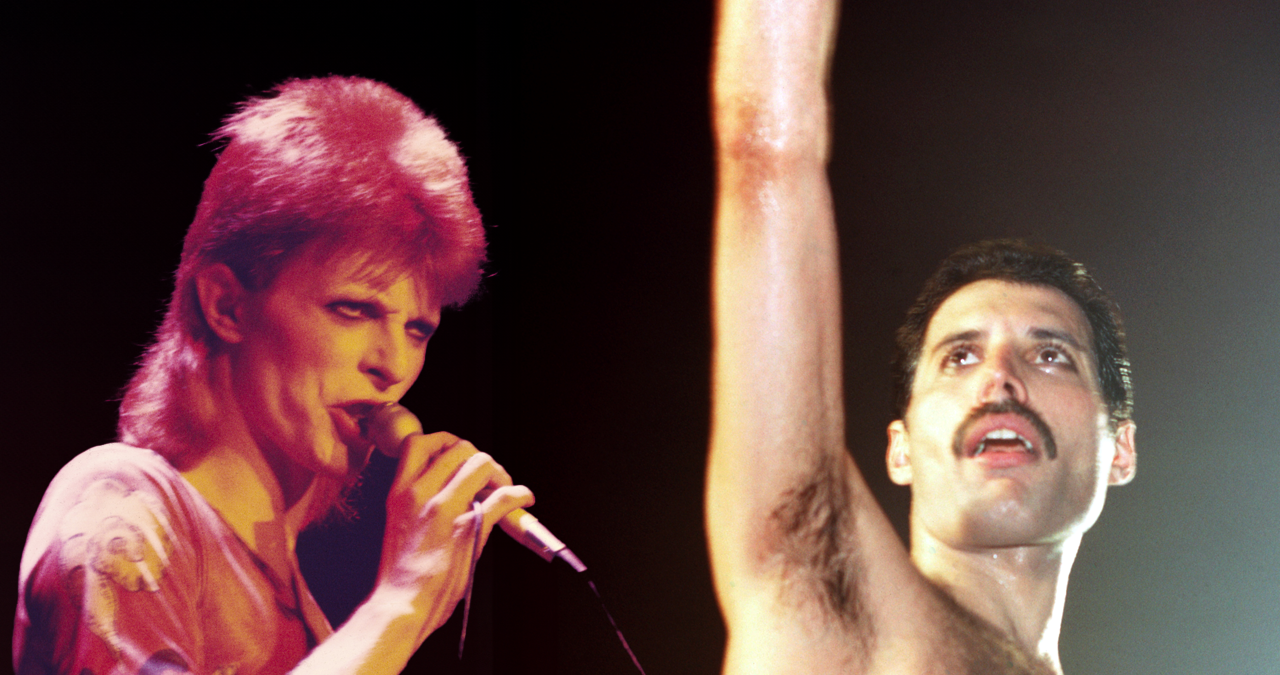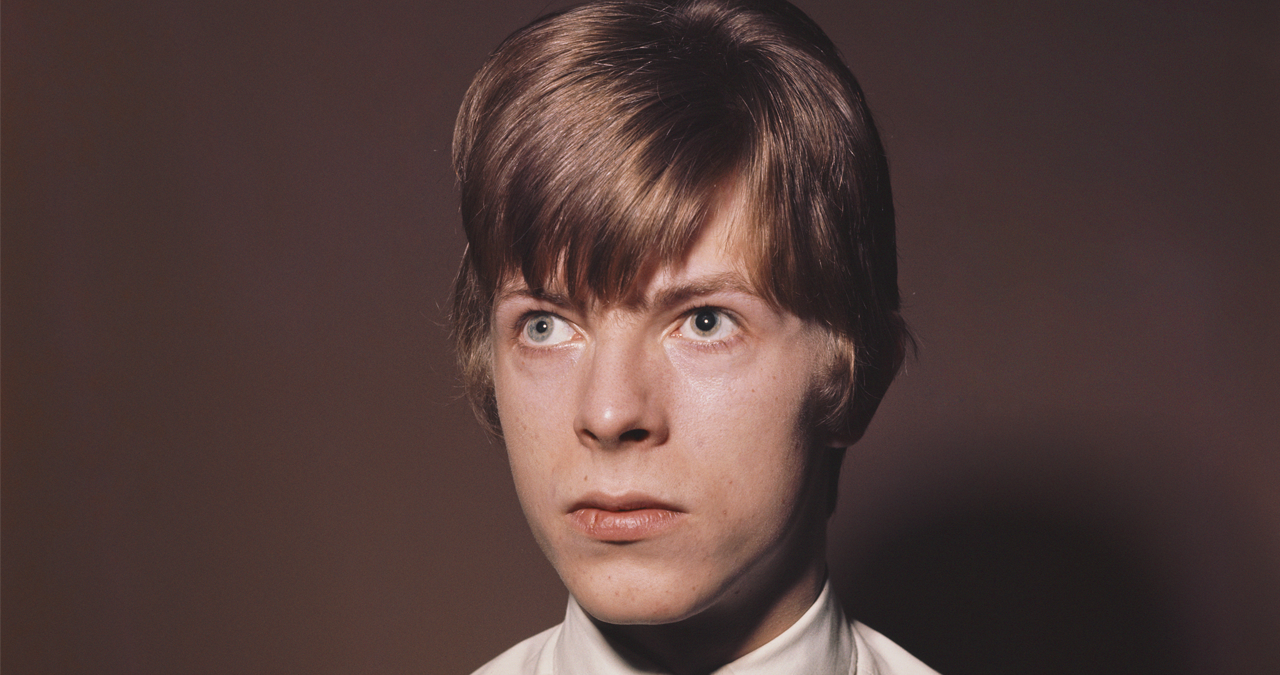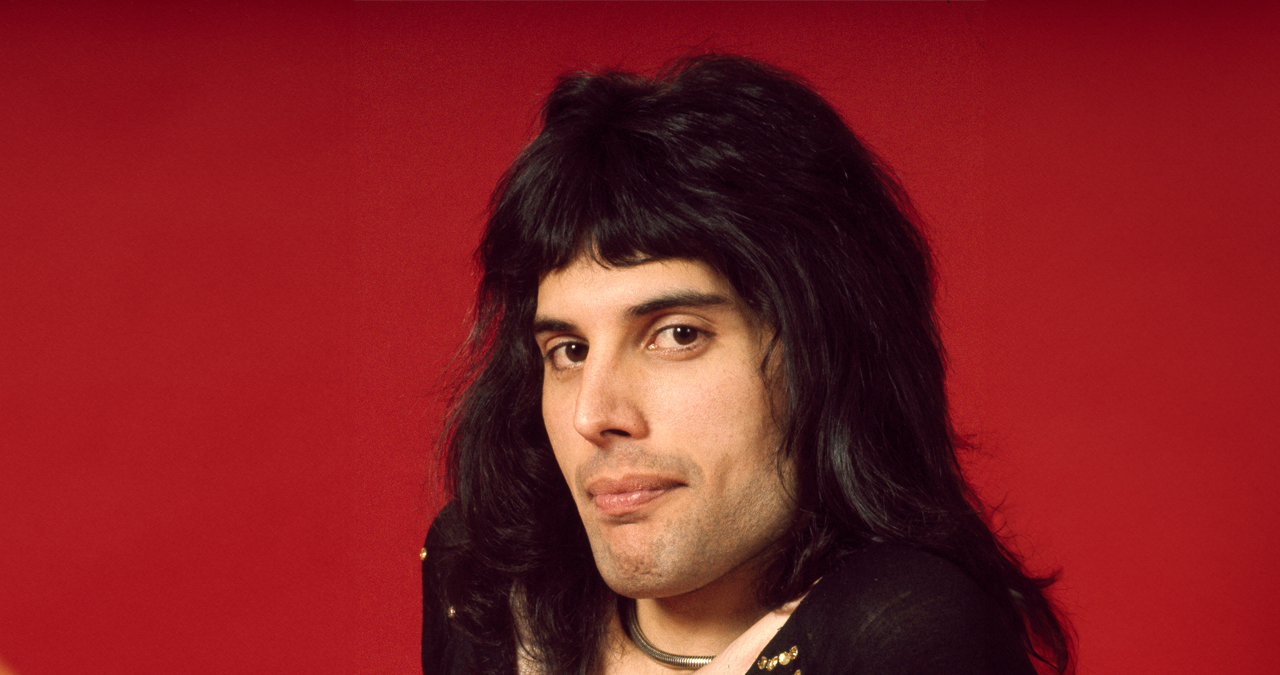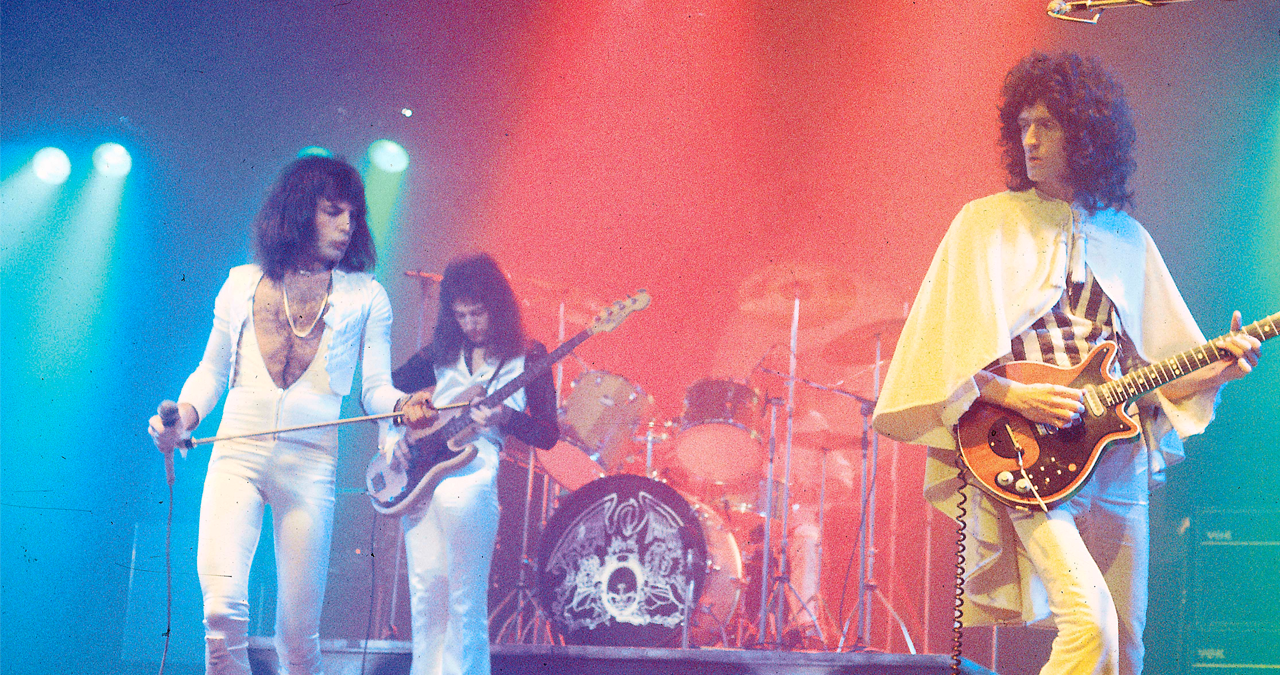The unlikely encounter between a pre-fame Freddie Mercury and David Bowie at a London market
The future Queen frontman encountered his eventual Under Pressure collaborator when working as a shop assistant at Kensington Market

There’s many odd coincidences and chance meetings in the history of pop, but perhaps none are quite as unlikely as the day that Queen’s iconic frontman Freddie Mercury - then a simple shop assistant - crossed paths with an up-and-coming songwriter, by the name of David Bowie.
Mercury and Bowie, of course, would go on to achieve global fame and, working together, helm the extraordinary chart-topping single, Under Pressure in 1981.
But back in the early 1960s, the future icons had little conception of the mark they would make on popular music.
Freddie Mercury - then known as Farrokh ‘Freddie’ Bulsara - had moved to England from his native Zanzibar in 1964 with his family.
During the mid 1960s, Freddie had been interested in the developing career of a niche songsmith called David Bowie. After a period of trying out various rock 'n' roll combos, Bowie was now scrabbling for a new direction. Channeling the British music hall tradition, Bowie had taken to adopting something of a 'cheeky-chappie' persona, dispensing whimsical fare, such as The Laughing Gnome and Rubber Band.
The curious Freddie attended a David Bowie performance at his very college (Ealing Art College).
It was there that Freddie first, very briefly, met Bowie - and even helped him with his on-stage set-up.
As Bowie recalled, “I’m so fond of Freddie Mercury. Not that he was ‘Mercury’ when I met him for the first time. Nothing like that. None of the name or the character, only all of the attitude. I did a gig at Ealing Tech, the college where he was doing art. I’d never set eyes on him before, he was just this scrawny little lad bending over backwards.” Bowie told Lesley-Ann Jones in her book Bohemian Rhapsody: The Definitive Story of Freddie Mercury.

But a few years later, the pair would have a fateful second encounter.
It was in the final year of the decade, and Mercury had resigned himself to working on a second-hand clothes and jewellery shop at London’s Kensington Market, alongside future Queen bandmate Roger Taylor. But it was when Freddie encountered nearby wholesaler Alan Mair, that his path would intertwine with into Bowie's once again.
Want all the hottest music and gear news, reviews, deals, features and more, direct to your inbox? Sign up here.
As Mair - who was himself a noted musician and songwriter, as well as the bassist of the Only Ones - recalled in an interview with Ops and Ops, “In Kensington Market, after a couple of years, I’d become friendly with two guys opposite, Freddie and Roger. They were burgeoning musicians who worked at a clothes and jewellery shop. Freddie came to work for me in [19]70, he stayed until 74.

Mair had recently landed a tasty line in footwear, with his hand-made boots becoming something of a talking point around the trendiest corners of the London scene.
“We used to go to the Greyhound pub after we closed on Saturdays and one time Freddie said he’d been at a party and everyone, men and women, was wearing the boots,” remembered Mair. “He said ‘I don’t know if you realise, but you’re not considered cool unless you’re wearing Alan Mair boots.’"
Mair already knew David Bowie - then riding off a raised profile by dent of his majestic 1969 single Space Oddity - but by 1970 he was - once again - struggling to find his way forward musically. This interstitial period meant that Bowie was keeping a tight watch on his budget.
Mair’s association with Bowie was partly due to the fact that his first band, the Beatstalkers had been managed by David Bowie’s manager Ken Pitt.
So when Bowie - keen to get his hands on a pair of Mair’s extraordinary boots himself - rocked up at Mair’s shop, an eager young Freddie was on-hand to size up Bowie’s boots.
Despite his recent brush with fame, Bowie was pretty out-of-pocket at the time, as Mair recalled in the book Is This the Real Life?: The Untold Story of Queen by Mark Blake, Bowie told Mair that Space Oddity hadn’t reaped the financial rewards he’d hoped; “Space Oddity had been a hit, but he said he had no money. Typical music biz! I said, ‘Look, have them for free’.
“So there was Freddie Mercury, a shop assistant, giving pop star David Bowie a pair of boots he couldn’t afford to buy,” continued Mair.

Of course, Bowie’s fame would explode fully in 1972 with his metamorphosis into Ziggy Stardust, while Queen’s stadium-rousing pomp would lead them to become one of the greatest rock bands of the century.
Bowie and Queen’s ‘official’ on-record collision, at Mountain Studios in Montreux, Switzerland in 1981, would yield one of the most life-affirming songs in the history of pop, with the titanic smash hit Under Pressure.
Although remaining good friends as their respective careers blossomed, Mercury and Bowie would go on to form a sort of rivalry. This came to the fore during the making of Under Pressure.
“Freddie and David locked horns, without a doubt. But that’s when the sparks fly and that’s why it turned out so great,” remarked Brian May to Mojo Magazine.“[They battled] in subtle ways, like who would arrive last at the studio. So it was sort of wonderful and terrible."

I'm Andy, the Music-Making Ed here at MusicRadar. My work explores both the inner-workings of how music is made, and frequently digs into the history and development of popular music.
Previously the editor of Computer Music, my career has included editing MusicTech magazine and website and writing about music-making and listening for titles such as NME, Classic Pop, Audio Media International, Guitar.com and Uncut.
When I'm not writing about music, I'm making it. I release tracks under the name ALP.
You must confirm your public display name before commenting
Please logout and then login again, you will then be prompted to enter your display name.